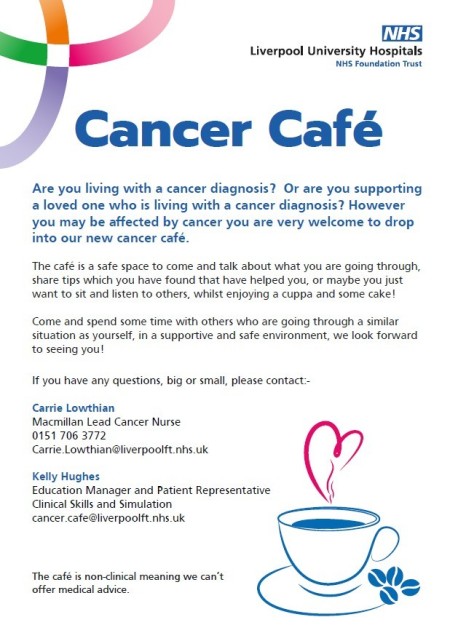At Liverpool University Hospitals, we are committed to supporting colleagues’ health and wellbeing, including matters relating to women’s health and those who identify as women.
Special Leave Policy
Our Special Leave Policy recognises a range of circumstances that may impact individuals, including health-related concerns such as menstrual health, menopause, fertility treatment, and other gender-specific health issues. These may entitle colleagues to special leave, subject to management approval and policy guidance.
Sickness Absence Policy
The Sickness Absence Policy offers further information and support where ongoing or short-term absence due to women's health conditions may be required, ensuring colleagues are treated with dignity and sensitivity.
Breastfeeding Support in the Workplace
The Trust is committed to supporting staff who choose to continue breastfeeding or expressing upon returning to work. The guidance document includes signposting to breastfeeding information, guidance, and support. Locations of infant feeding and expressing rooms across Trust sites and encouragement for open discussions between staff and managers to arrange individualised support. We understand that each feeding journey is unique and aim to ensure a positive, supportive experience for all. To view the guidance, please click here.
Managing Menopause
The Trust is committed to supporting colleagues who are experiencing or going through menopause. We understand that this can be a challenging time, and we are here to provide guidance, resources, and a supportive environment to help you manage symptoms and maintain your wellbeing. We have also signed the menopause pledge: further information is available here: About us (wellbeingofwomen.org.uk)
We all should be proactive in our own self-care. Staff who suffer from on-going issues due to menopause should take advice from their GP. Managers and staff should also be aware that referrals can be made to the Trust Occupational Health Service.
Colleagues are also encouraged to engage with the Inspiring Women’s Network, a supportive platform for connection, learning, and empowerment. To explore the network’s aims and upcoming activities, you can visit their site here. For those seeking peer support, our Menopause Support Group offers a safe space to share experiences and advice please email: healthandwellbeing
Staff who are regular display screen equipment users may be entitled to an eye care vouchers through Specsavers. This entitles you to a free eye test and a contribution towards glasses if you require them for a PC screen. Your manager should complete the online form, which will be sent into Occupational Health and Wellbeing. To access the form, please click here.
Our Musculoskeletal (MSK) physiotherapy team helps people with problems affecting their joints, muscles, ligaments and tendons. This can include things like sports injuries, joint pain, arthritis, or pain after surgery. The team will assess your condition and provide treatment to help reduce pain, improve movement, and support your recovery. To visit the physiotherapy page, click here.
To access the Trusts Health & Wellbeing Monthly Calendar, click here.

The Health and Safety (Display Screen Equipment) Regulations can apply to workers who:
- Workers who use DSE daily, for an hour or more at a time. The regulations do not apply to workers who use DSE infrequently or only use it for a short time however it is good practice to ensure that we are always looking after our posture and positioning.
- Work at home on a permanent or long-term basis
- Routinely split their time between their workplace and home (sometimes called hybrid working)
If you work from home or have a staff member who works from home you need to complete the same self-assessment as you would for the workplace and assist with the implementation of the changes required and order the equipment required to enable them to perform their job role without detriment to their health, safety and wellbeing.
For more information, click here.
To access our migraine support toolkit, click here.
Staff Drop-In Sessions: Smoking Cessation (CURE Team)
The Smoking Cessation Team (CURE Team) will be hosting staff drop-in sessions every Wednesday from 11:00am to 1:00pm, starting 22 October 2025 and continuing until the end of January 2026.
These sessions will be held on the 9th floor of the Conference Centre at the Royal Hospital. As a fixed room booking was not possible, a poster will be displayed on the door each week to indicate the location of the session.
The sessions are open to all staff members who would like support to quit smoking or who wish to learn more about the service and referral process.
The Queen of Greens fruit and vegetable van visits Broadgreen Hospital every Wednesday outside the Alexandra Wing from 12:45pm-1:30pm. You’ll find a wide range of fresh, affordable fruit and vegetables. Everyone is welcome – staff, patients, and visitors.
Bluebell Woods: Guided Walks - A peaceful 30-minute guided walk to help you relax and connect with nature. Max 12 people per session.
Bluebell Woods: Conservation Volunteering - Take part in activities like habitat creation, footpath maintenance, litter picking, tree planting, and invasive plant control. Wednesdays 10:30–12:30 or bookable at other times.
Community Garden Volunteering - Support the care of the Community Garden through bookable 30-minute sessions available on Tuesdays. Aintree, Broadgreen & Royal Hospitals
Group Bulb Planting Sessions - Book a 30-minute session for up to 6 people to help brighten our hospital spaces.